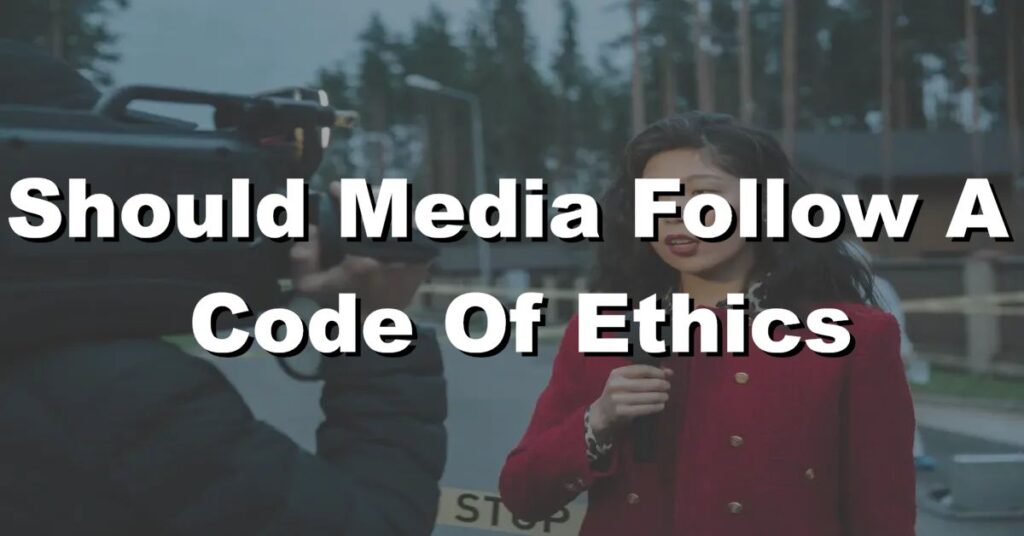Journalism is a crucial aspect of our democracy, and the media plays a crucial role in informing the public. However, the media can also be used to manipulate and mislead, and so it is essential that the media follows a strict code of ethics. In this article, we will discuss why a code of ethics is necessary for the media, what it entails, and how it affects the way the media operates.
The importance of journalistic integrity
Journalistic integrity is the foundation of credible and reliable news. It encompasses the principles of truthfulness, accuracy, fairness, and impartiality in reporting. Maintaining journalistic integrity is crucial for the public’s trust in the media and its role in providing accurate information to society.
At its core, journalistic integrity ensures that journalists adhere to a code of ethics and professional standards. By upholding these principles, journalists strive to present information objectively, without personal biases or external influences. It enables them to hold power accountable, shed light on important issues, and contribute to a well-informed society.
The history and evolution of media ethics
Media ethics have evolved over time, shaped by societal changes and technological advancements. The concept of ethical journalism dates back to the early days of print media, where publications like the Penny Press in the 19th century aimed to provide objective reporting to a wider audience.
As media expanded with radio, television, and digital platforms, new ethical challenges emerged. Journalists faced pressures of speed, competition, and the demand for captivating content. The rise of citizen journalism and social media further complicated ethical considerations, blurring the lines between professional journalists and everyday individuals disseminating news.
Examples of ethical dilemmas in media
Ethical dilemmas in media can arise in various forms. One common dilemma is the balance between privacy and the public’s right to know. Journalists often grapple with how much personal information to disclose about individuals involved in news stories while ensuring their privacy and safety are respected.
Conflict of interest is another ethical challenge. Journalists must navigate potential conflicts that may compromise their objectivity or impartiality. This includes disclosing any financial or personal relationships that could influence their reporting.
The role of media in shaping public opinion
Media plays a significant role in shaping public opinion by providing information and analysis on important issues. The way news is presented, the topics covered, and the framing of stories can influence how the public perceives events and develops their understanding of complex subjects.
Media has the power to set the agenda, highlighting certain issues while downplaying others. Journalistic integrity ensures that this power is used responsibly, with a commitment to accurate reporting and presenting multiple perspectives.
The benefits of ethical journalism for both media and society
Ethical journalism benefits both the media industry and society as a whole. For the media, it establishes credibility and trust among audiences, enhancing their reputation as reliable sources of information. Ethical journalism fosters a loyal readership or viewership, which is essential in an era of media fragmentation and competition.
In society, ethical journalism promotes an informed citizenry. It enables individuals to make educated decisions, participate in democratic processes, and hold power accountable. Ethical reporting contributes to a healthier public discourse, facilitating dialogue and understanding across diverse perspectives.
Conclusion
In conclusion, the media plays a critical role in shaping public opinion and providing people with reliable information. Therefore, it is important for the media to adhere to a code of ethics that promotes accuracy, fairness, and objectivity. By following these principles, journalists can earn the trust of their audience and help maintain the integrity of the media industry.

